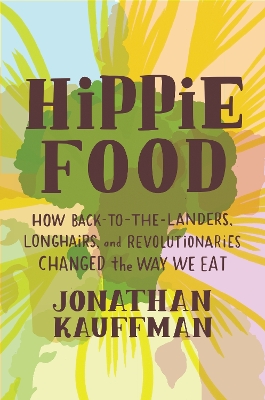Obviously I had to listen to this book. They should have just titled it "A Book for Heather."
This is a history of the health food and vegetarian food movements in the U.S. It starts with briefly talking about health food people like the Kelloggs and Dr. Graham at the end of the 19th century and early 20th century. It then segues into the macrobiotic movement which came to the U.S. from Japan. The bulk of the book focuses on the post-WW II push back to the marketing of processed convenience food.
What I really learned from this book:
White Folks Can't Cook
The hippie/back-to-the-land movement was overwhelmingly white. That's briefly addressed but not explored deeply. A lot of these people seemed to come from a background where they didn't learn to cook without convenience foods. So when they tried to cook whole food ingredients, they pretty much failed. Spices? What are they?
That's how vegetarian food got a reputation for being bland and boring. It only started to get good when they started stealing ideas from other cultures. Japanese influences came in through macrobiotics. This gets linked to politics because of the 1965 immigration reform that allowed more immigrants from non-European countries. Those people opened restaurants and suddenly people realized that you don't need to eat food with the texture and taste of tree bark. If the movement was inclusive from the start, hippie food might not have had such a bad reputation.
I loved hearing about how all sorts of foods that we consider staples now came to the United States. Again this is presented from a white, middle class perspective. It talks about starting tofu production in the States but I'm sure there were people in Asian communities who were doing this before white people adopted it and started mass production. The same can go for different spices and/or vegetables that I'm sure were in use in black or Latinx communities. That's my major criticism of this book.
I would get excited whenever some of my favorites where mentioned. Diet for a Small Planet! (Yes, her made up theory of the necessity of "complete proteins" has been repeatedly debunked. Can we let that die now? Please? Asking for all vegetarians who get asked about it ALL THE TIME.) The Moosewood Cookbooks! Those were some of the first I read.
Read this one if you love food history as it relates to personal ethics and politics.
This review was originally posted on Based On A True Story
